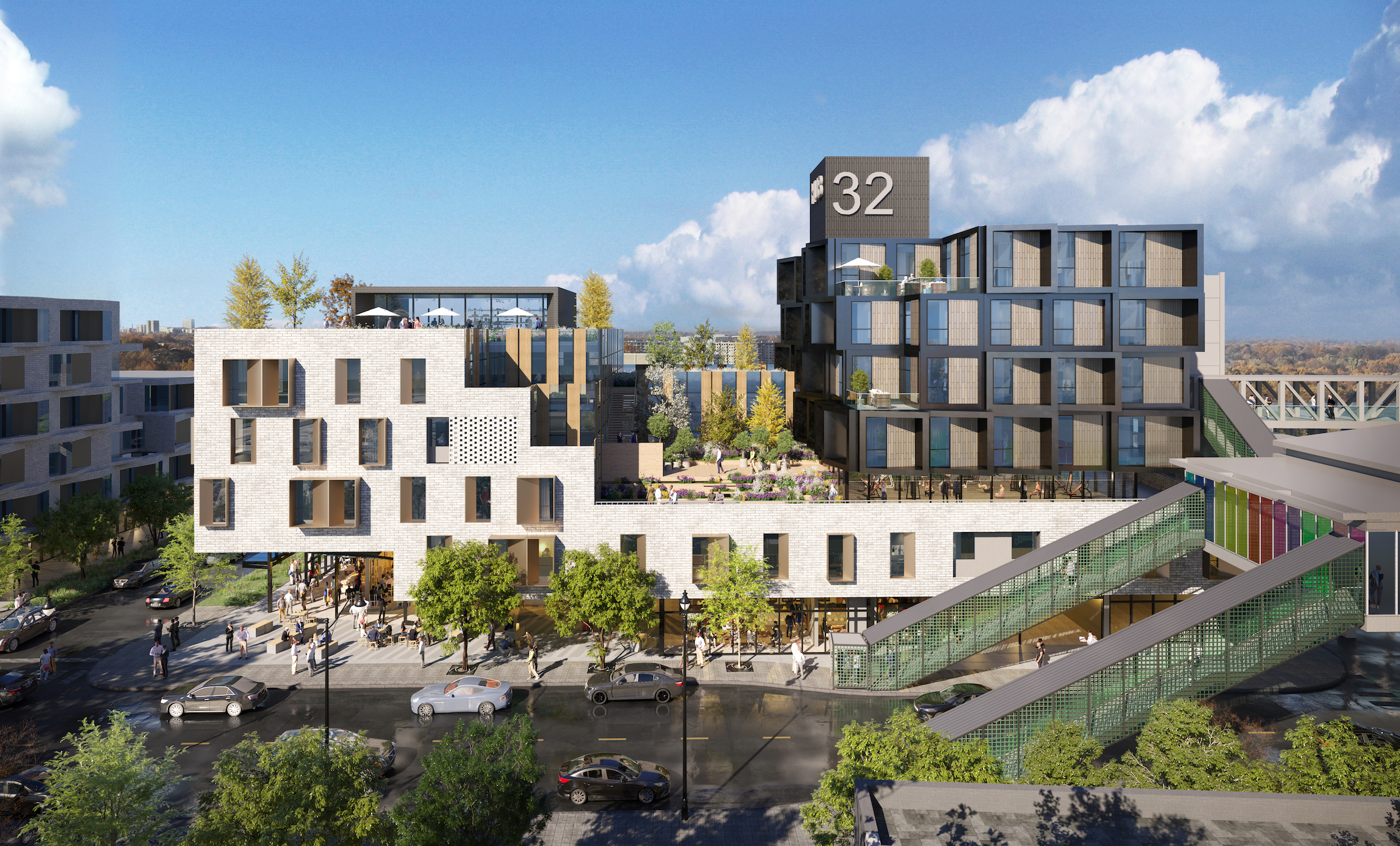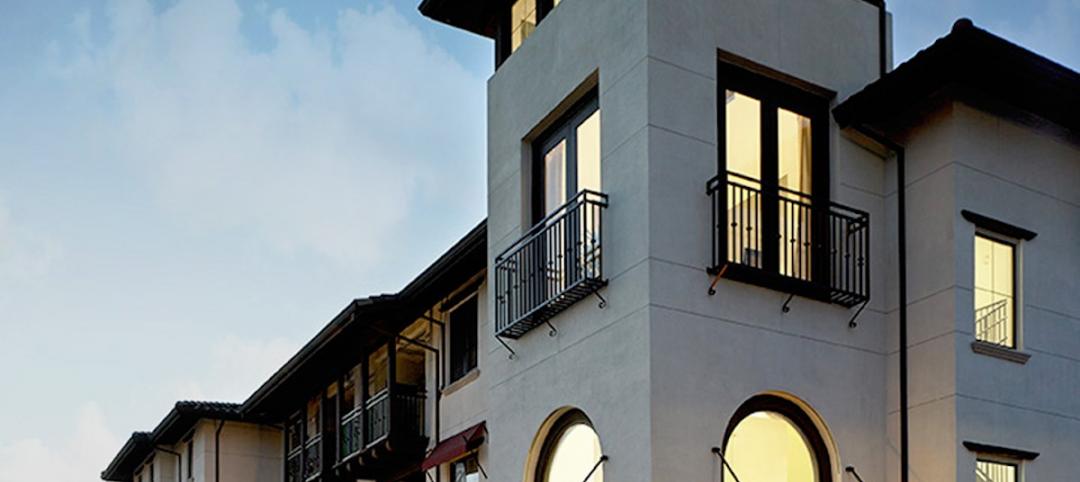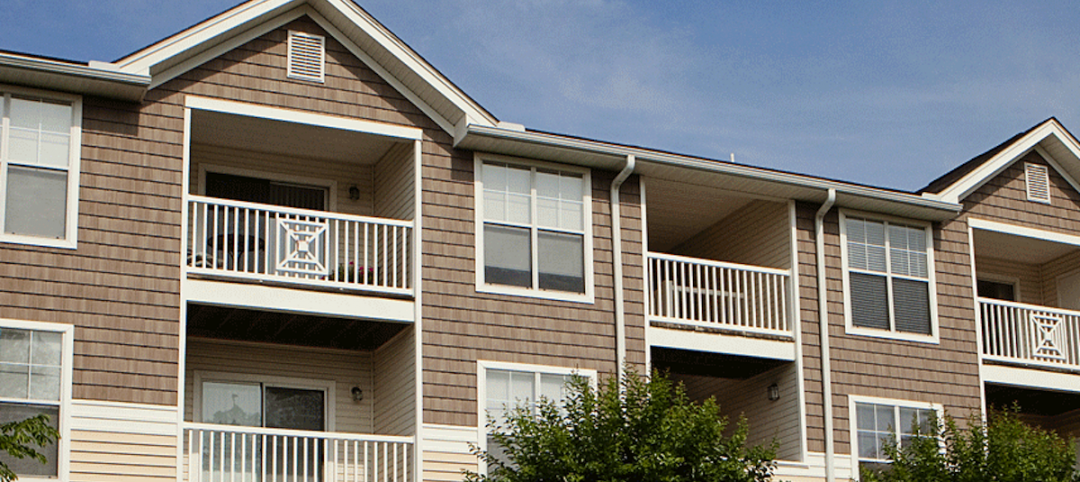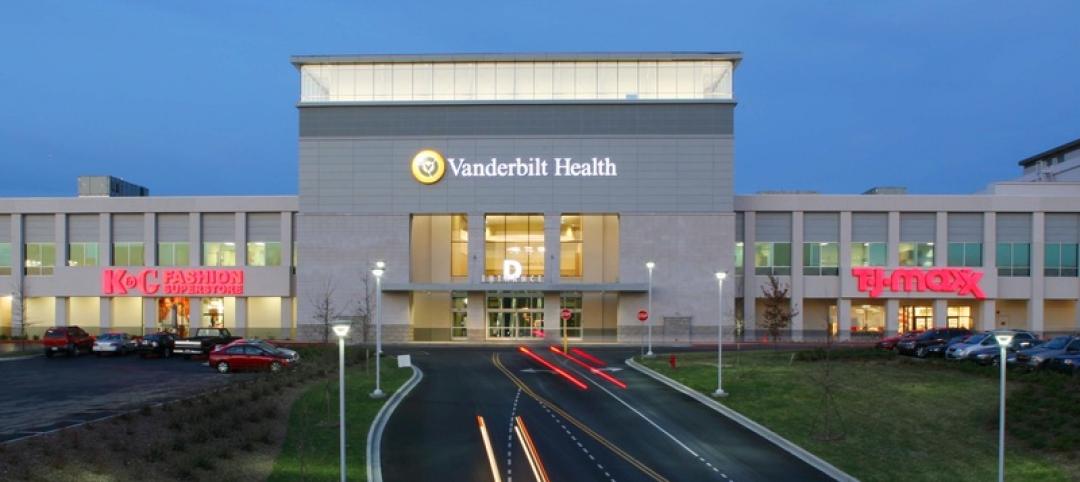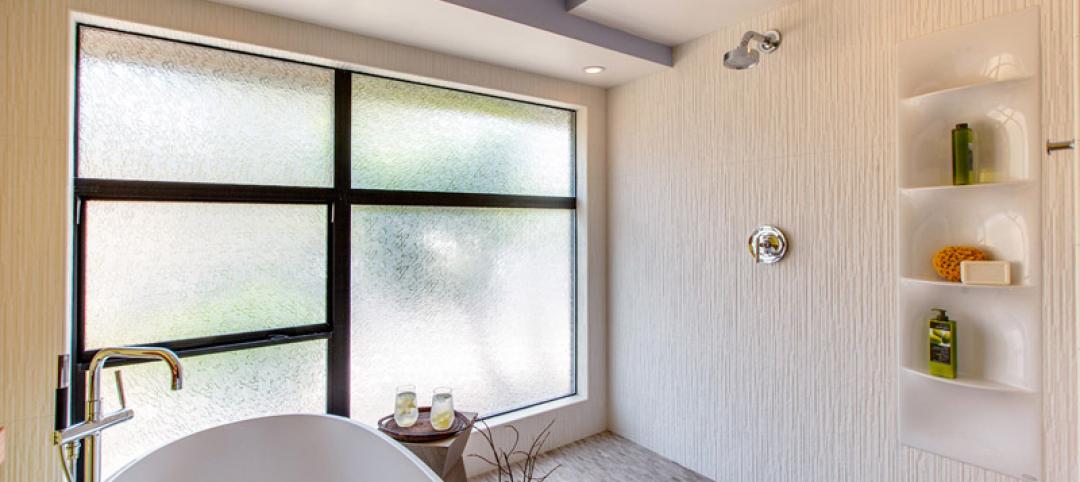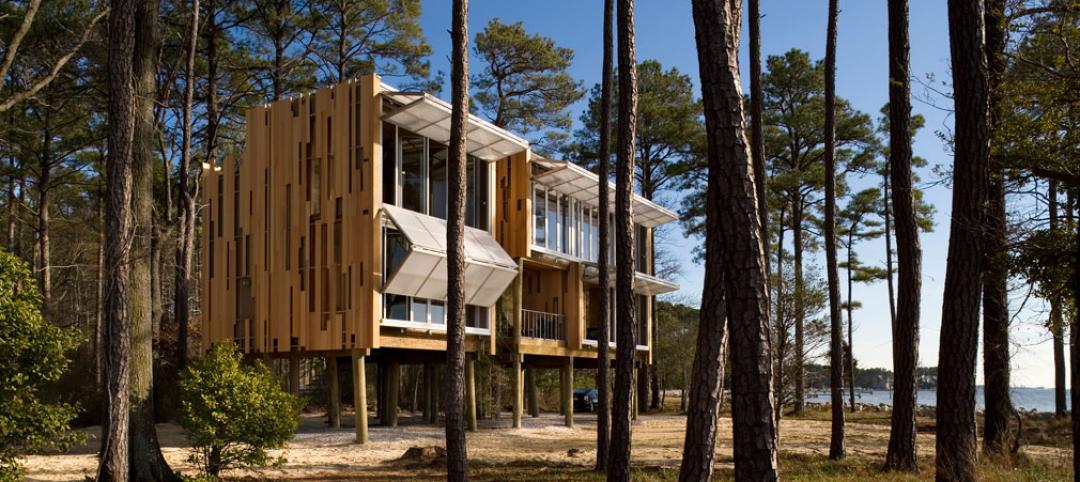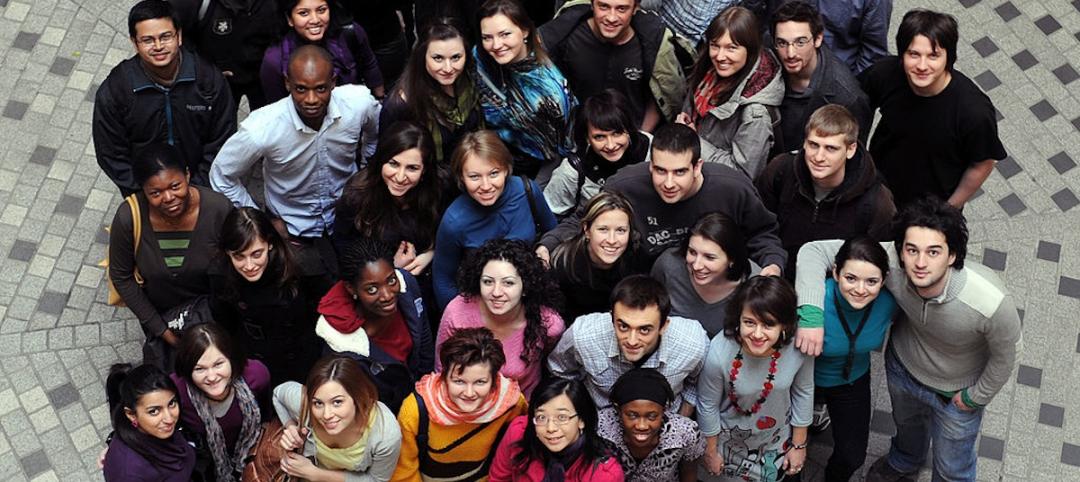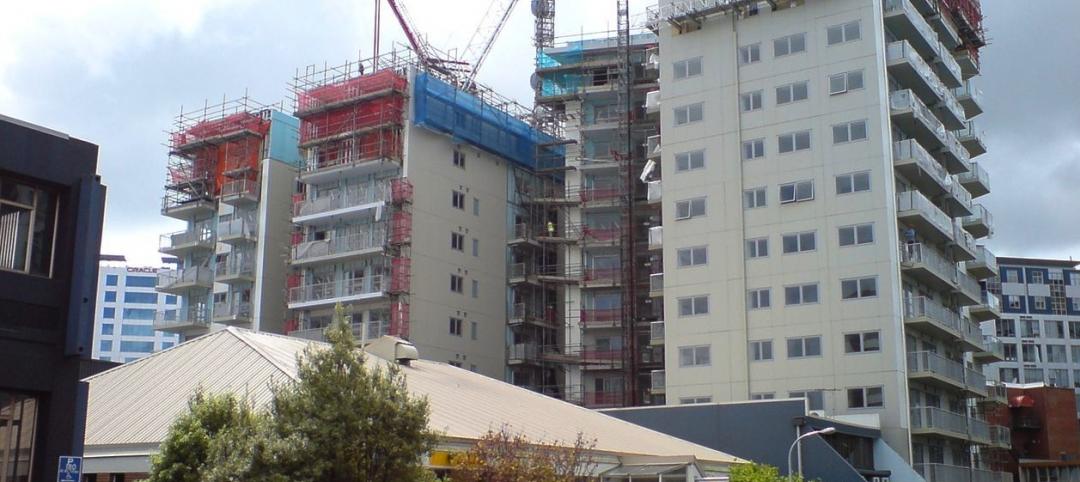HUB 32, a 65-unit multifamily housing development, will provide affordable housing and community amenities in Chicago’s Garfield Park neighborhood.
Brooks + Scarpa’s recently unveiled design takes inspiration from the American tradition of patchwork and quilting. The panels on the building’s exterior create a sense of depth and texture that’s meant to evoke the feeling of a handmade quilt. In addition to providing warmth and comfort, the use of quilting and stitching to inform the design draws on Chicago’s rich textile tradition.
“By incorporating elements of the city’s textile tradition into the design of our building, we hope to create a sense of connection and belonging for our residents,” Brooks + Scarpa says in a statement.
The design of the multifamily housing project also takes cues from the city’s centuries-old history of courtyard buildings. HUB 32 has an elevated courtyard that sits above ground-level commercial space. The courtyard creates usable space at the center of the project, and for the people living around it, the courtyard will provide privacy and safety.
The courtyard also will help the structure fit with its surrounding neighborhood. In addition, the strategic placement of the units and windows will orient the apartments to social spaces that sit apart from each other yet are visually connected to each other and to the street.
Brooks + Scarpa says the building’s design follows its five guiding principles of equity, innovation, a sense of place, environmental stewardship, and community engagement. The design firm says it will partner with local organizations to promote sustainability and support community events and initiatives. “Design excellence … can and should be for everyone,” the firm says in its statement.
On the Building Team:
Owner/developer: KMW Communities and Michaels
Design architect: Brooks + Scarpa
Architect of record: Studio Dwell
MEP engineer: Quest Design Group
Structural engineer: Rockey Structures
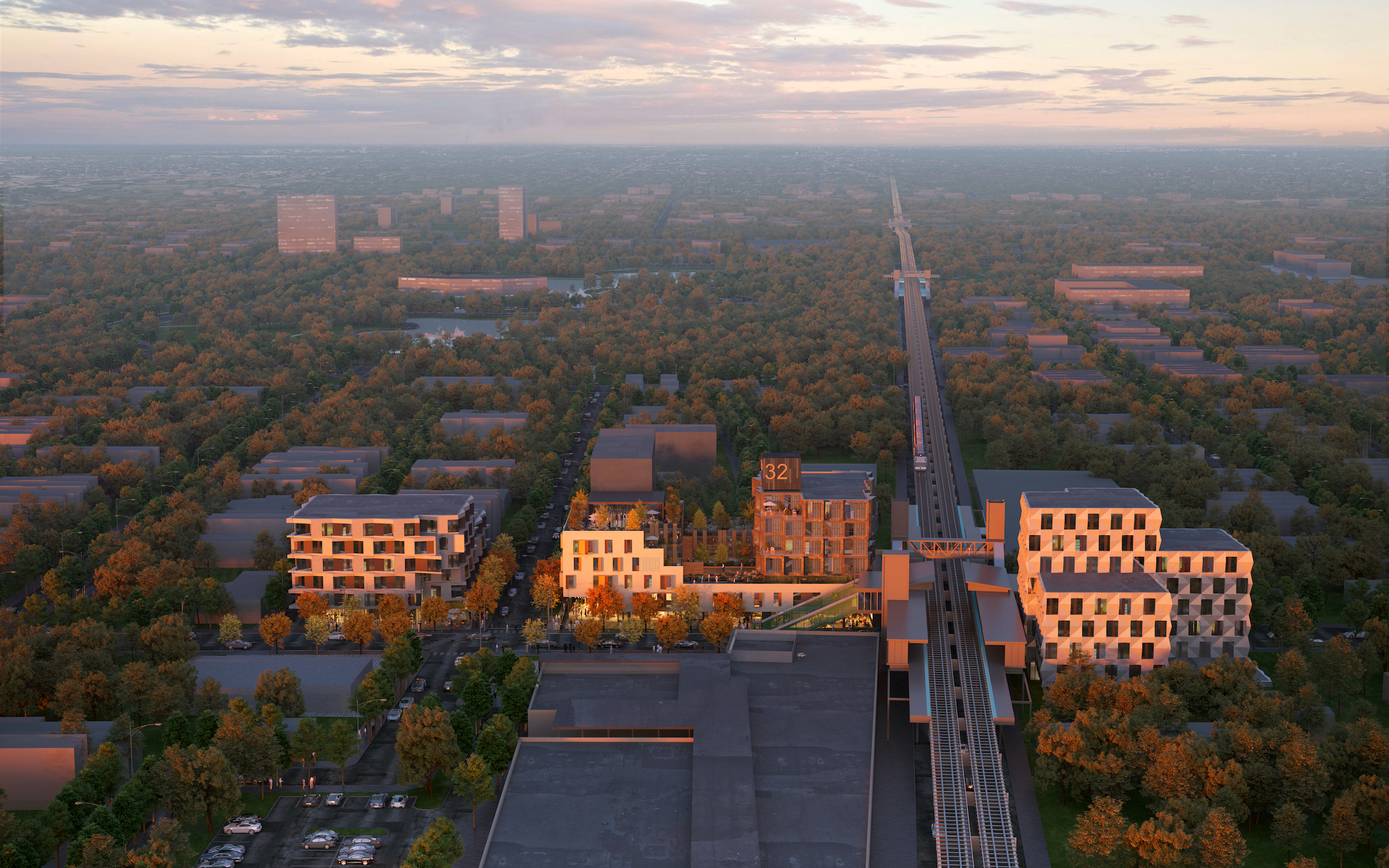
Here is the full design statement from Brooks + Scarpa:
The design of HUB 32, a 65-unit mid-rise residential building in Chicago is inspired by the concept of quilting and stitching. The inspiration came from American patchwork quilting traditions, exemplified by the Gee's Bend abstract geometric style-which is itself influenced by newspaper- and magazine-collages used for insulation on the inside walls of homes in the early rural American.
The exterior of the building is adorned with a series of materials and forms that mimic the appearance of a quilt, with each part representing a different pattern or color. These panels are arranged in a way that creates a sense of depth and texture, evoking the feeling of a cozy, handmade quilt.
The idea behind using quilting and stitching as the basis for the design was to create a sense of warmth and comfort, as well as a connection to the rich textile tradition of Chicago. The city has a long history of textile production, and we wanted to pay tribute to that history by incorporating these elements into the design of our building.
Overall, the building is designed to be a welcoming and comfortable place for its residents. Taking cues from the rich history of courtyard buildings in Chicago such as Pattington Apartments, the building is designed around an elevated courtyard above ground level commercial space. The courtyard typology has existed in Chicago for more than two hundred years. It promotes pedestrian-oriented neighborhoods as an alternative to sprawl, creating usable space in the center of the project, instead of unused, leftover space outside of the building volume.
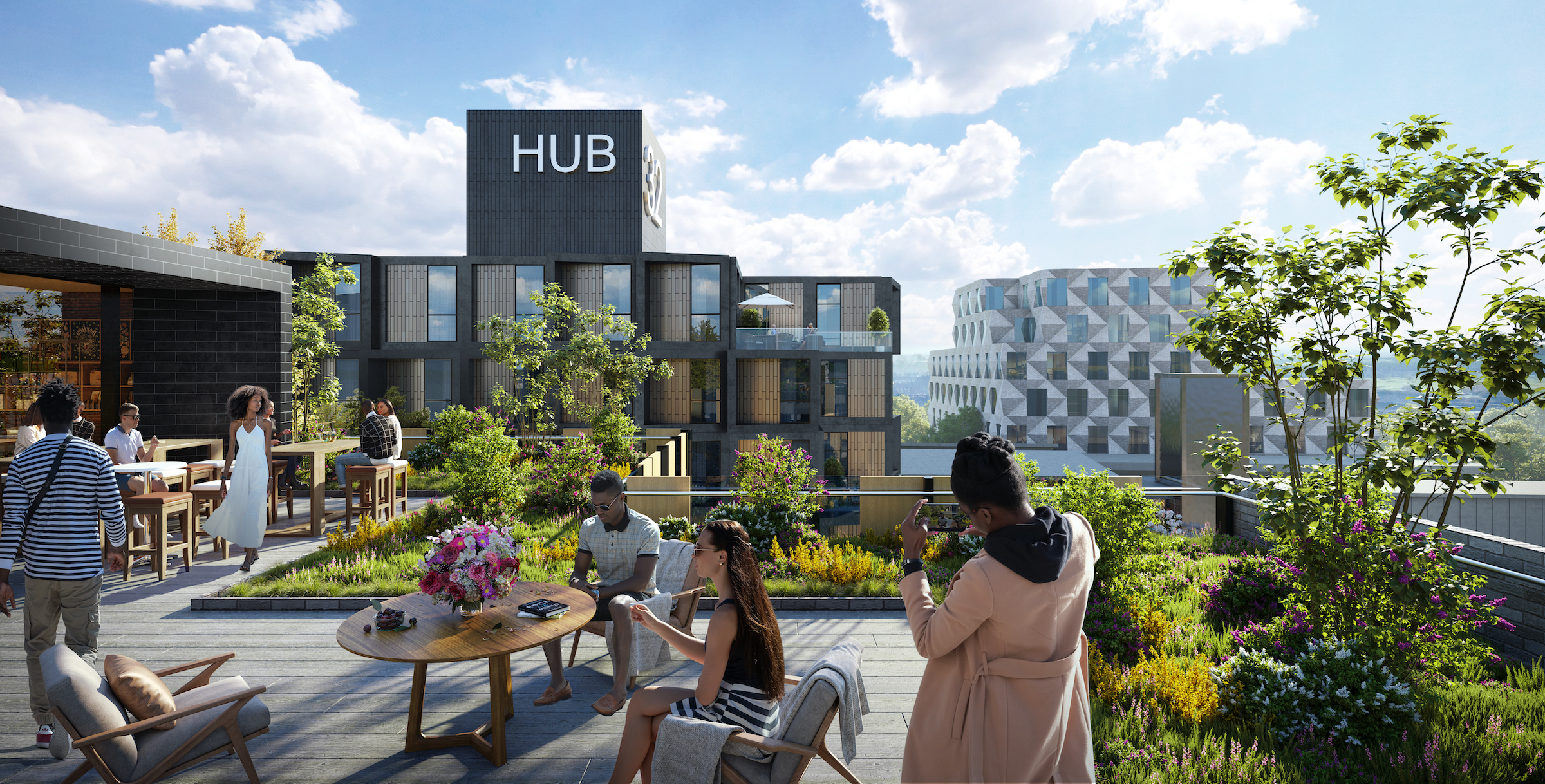
More than any other multi-dwelling housing, courtyard apartments, “make you feel like you belong to a place.” For people living around the courtyard, the space provides a sense of safety and privacy; the courtyard is a quasi-public space that mediates between the home and the street. For the city at large, the courtyard is an urbane housing type that fits well into neighborhoods. Strategically placed windows, purposeful exterior elements and units that wrap the outer-most edges, orient the apartments to social spaces that are spatially apart, yet visually connected to each other and the street below.
In addition, the design of the building follows our five guiding principals: equity, innovation, a sense of place, environmental stewardship, and community engagement.
Design excellence is not mutually exclusive. It can, and should be for everyone. In terms of equity, we are committed to creating a building that is accessible and welcoming to all members of the community, regardless of their background or circumstances.
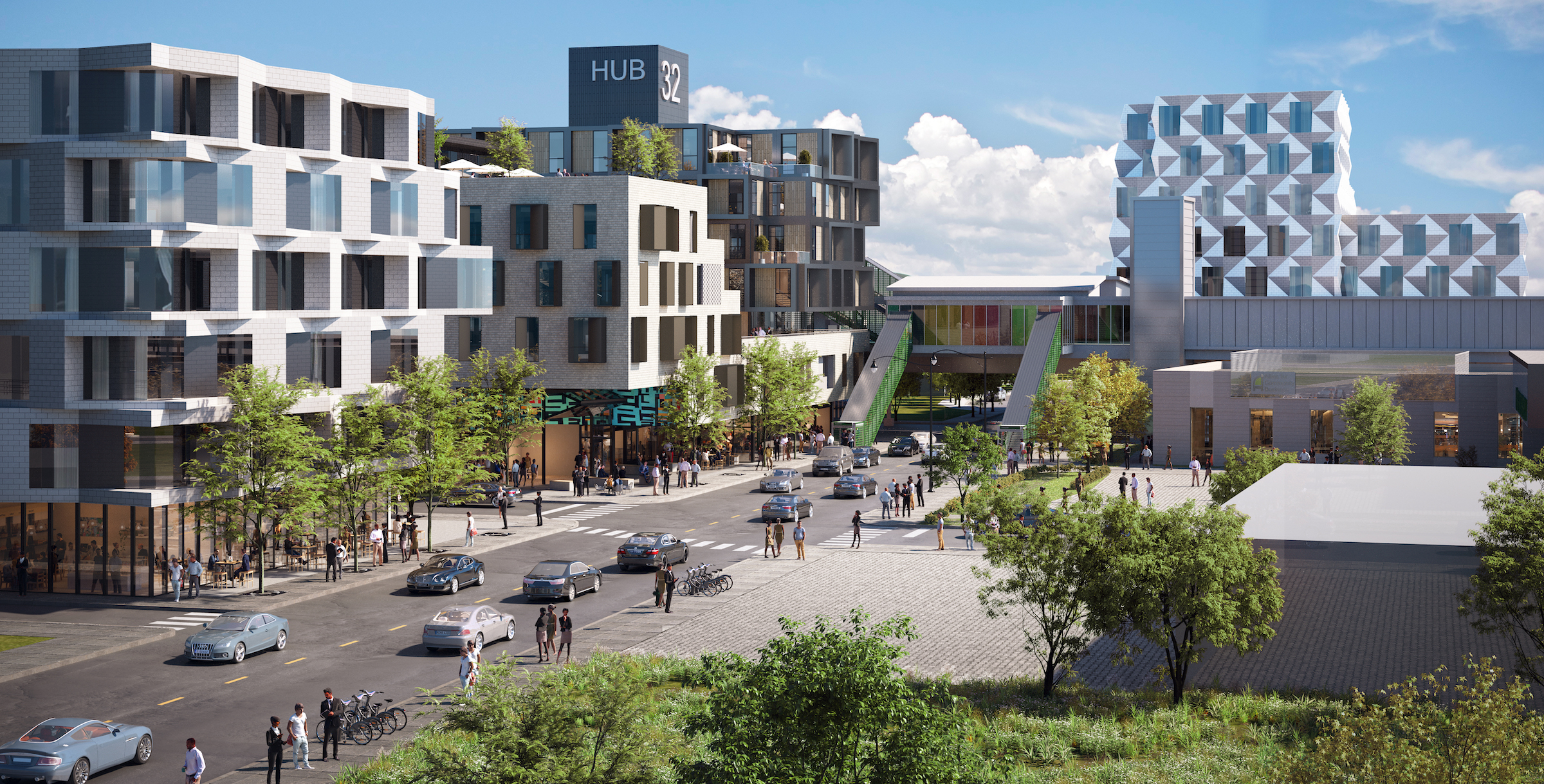
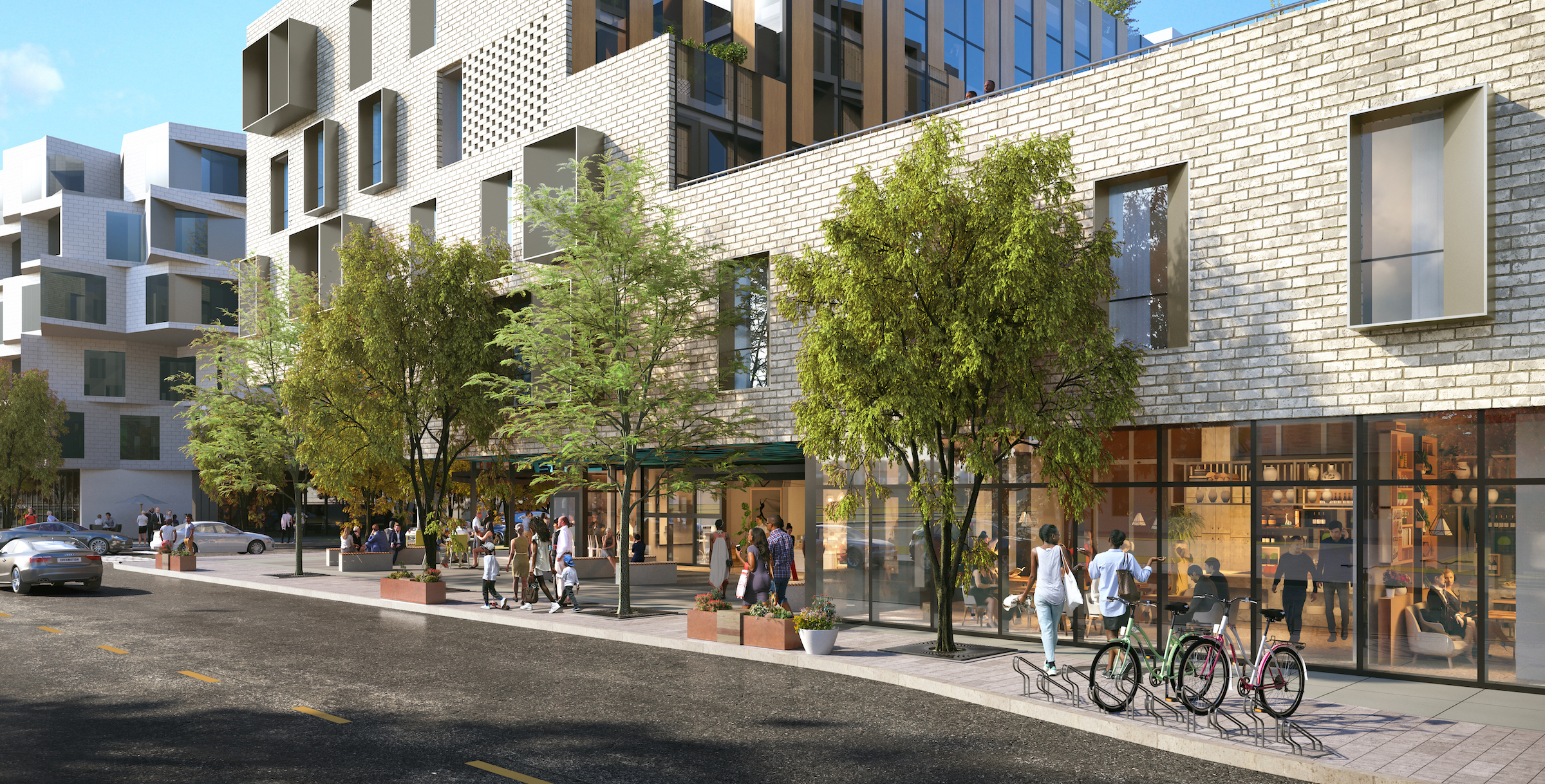
We are also committed to innovation, and are constantly seeking out new ways to improve the design and functionality of our building. This includes incorporating sustainable technologies and materials wherever possible, in order to reduce our environmental impact and provide our residents with a high-quality living experience. We embrace a creative approach to design and problem solving.
A sense of place is important to us, and we want our building to be a reflection of the unique character and history of Garfield Park and the City of Chicago. By incorporating elements of the city's textile tradition into the design of our building, we hope to create a sense of connection and belonging for our residents.
Finally, we are committed to environmental stewardship and community engagement. We believe that it is our responsibility to be good stewards of the environment and to work together with the community to create a better future for everyone. This includes initiatives such as partnering with local organizations to promote sustainability and supporting community events and initiatives.

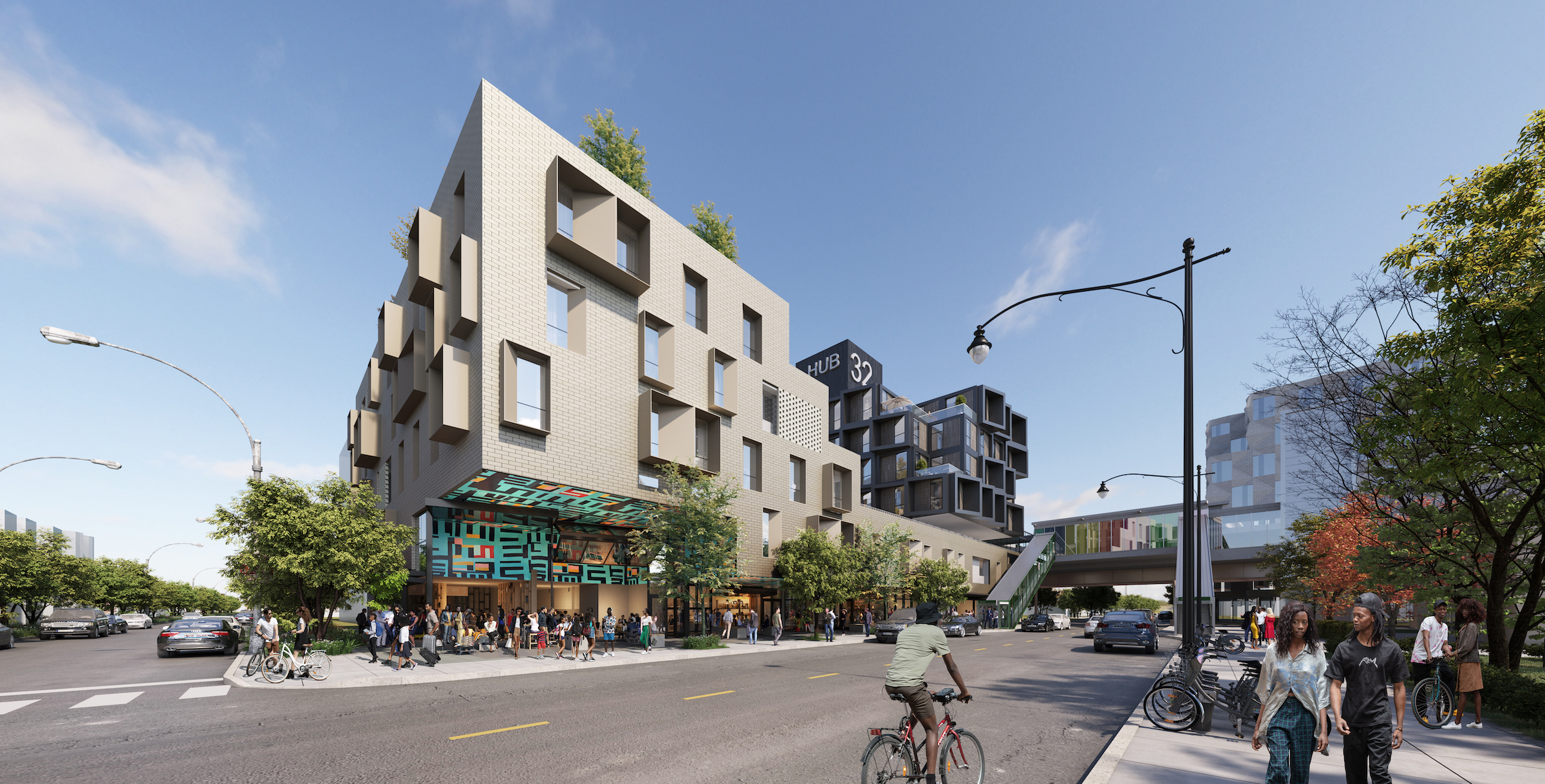
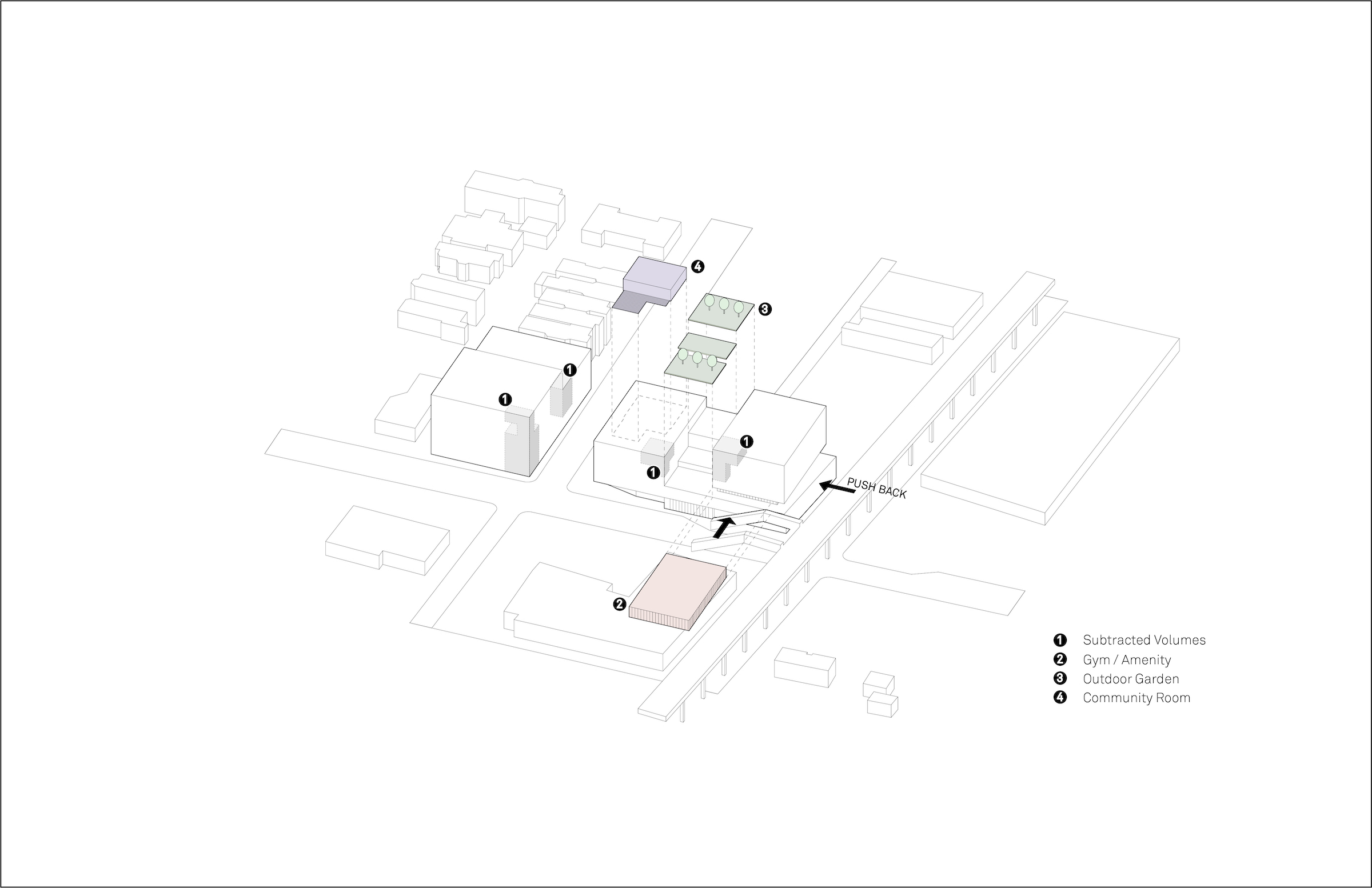
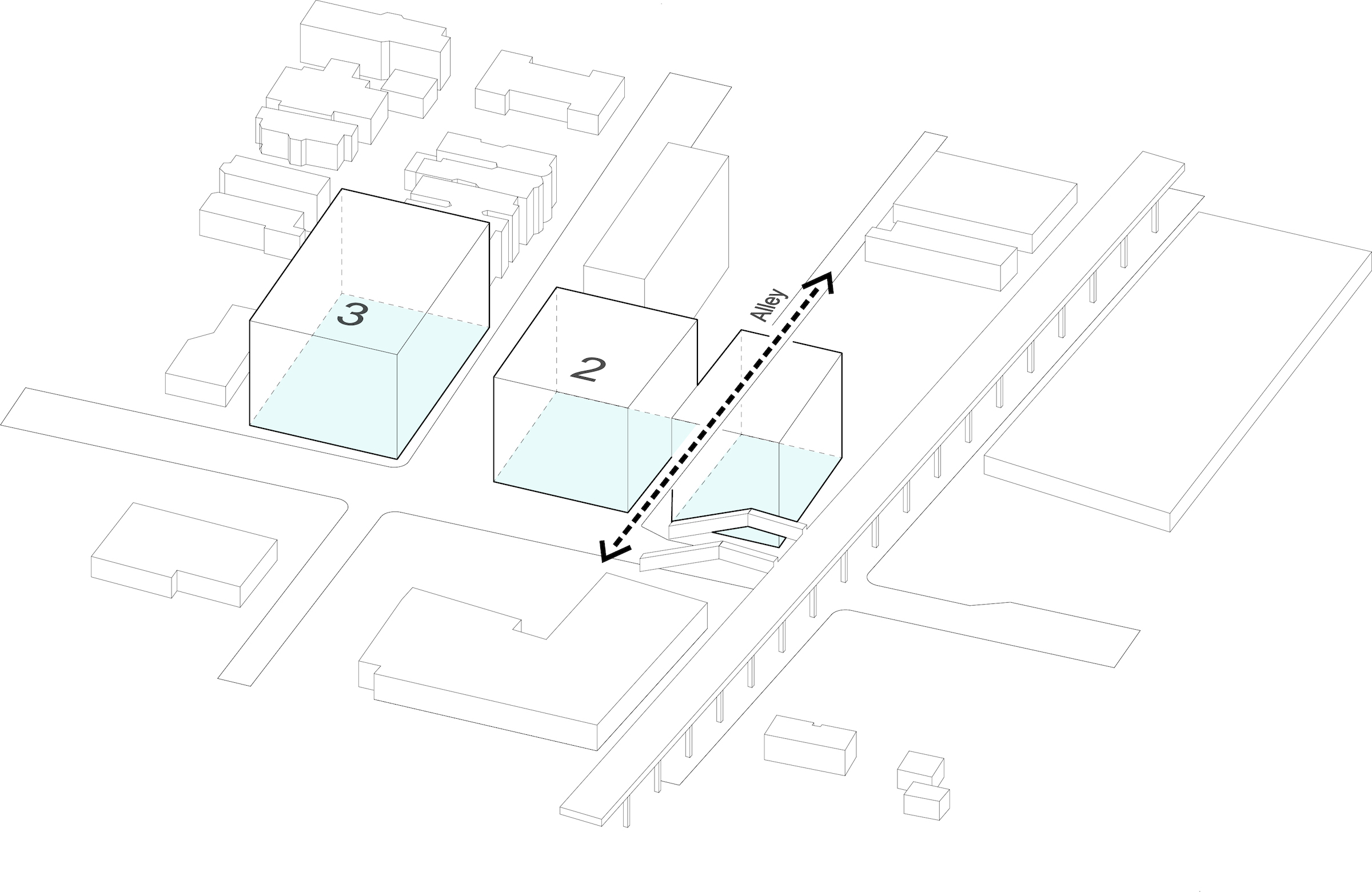
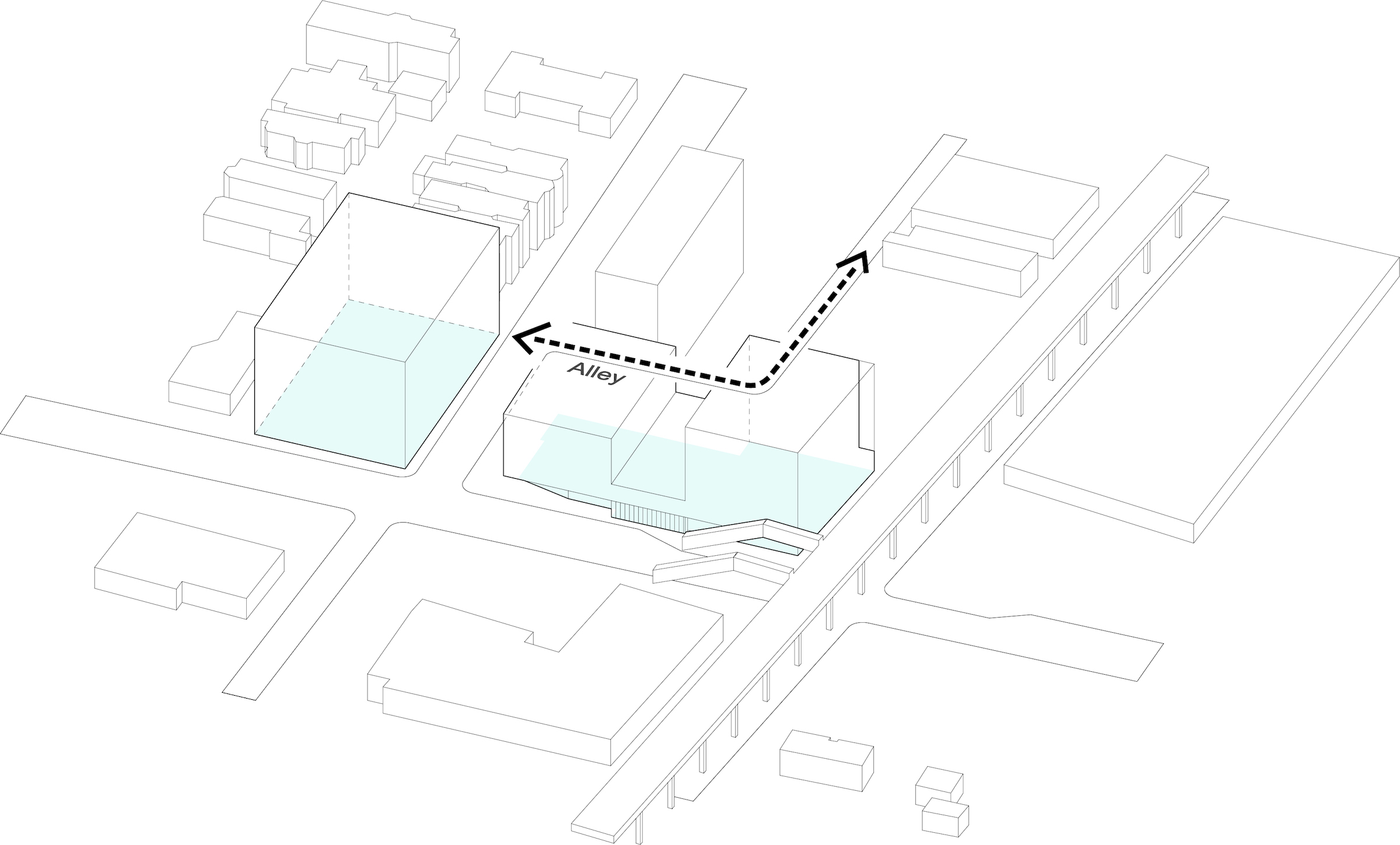
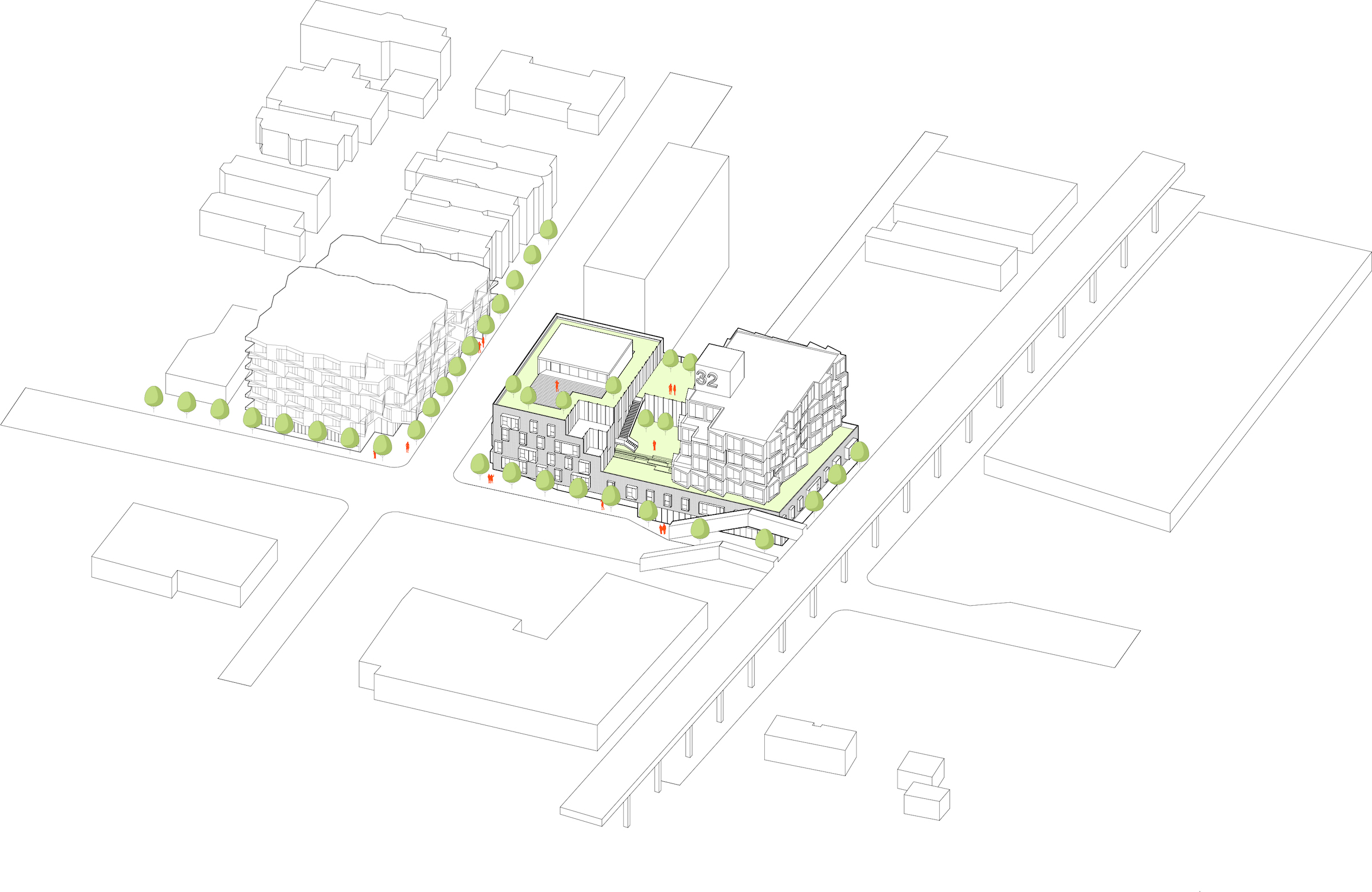
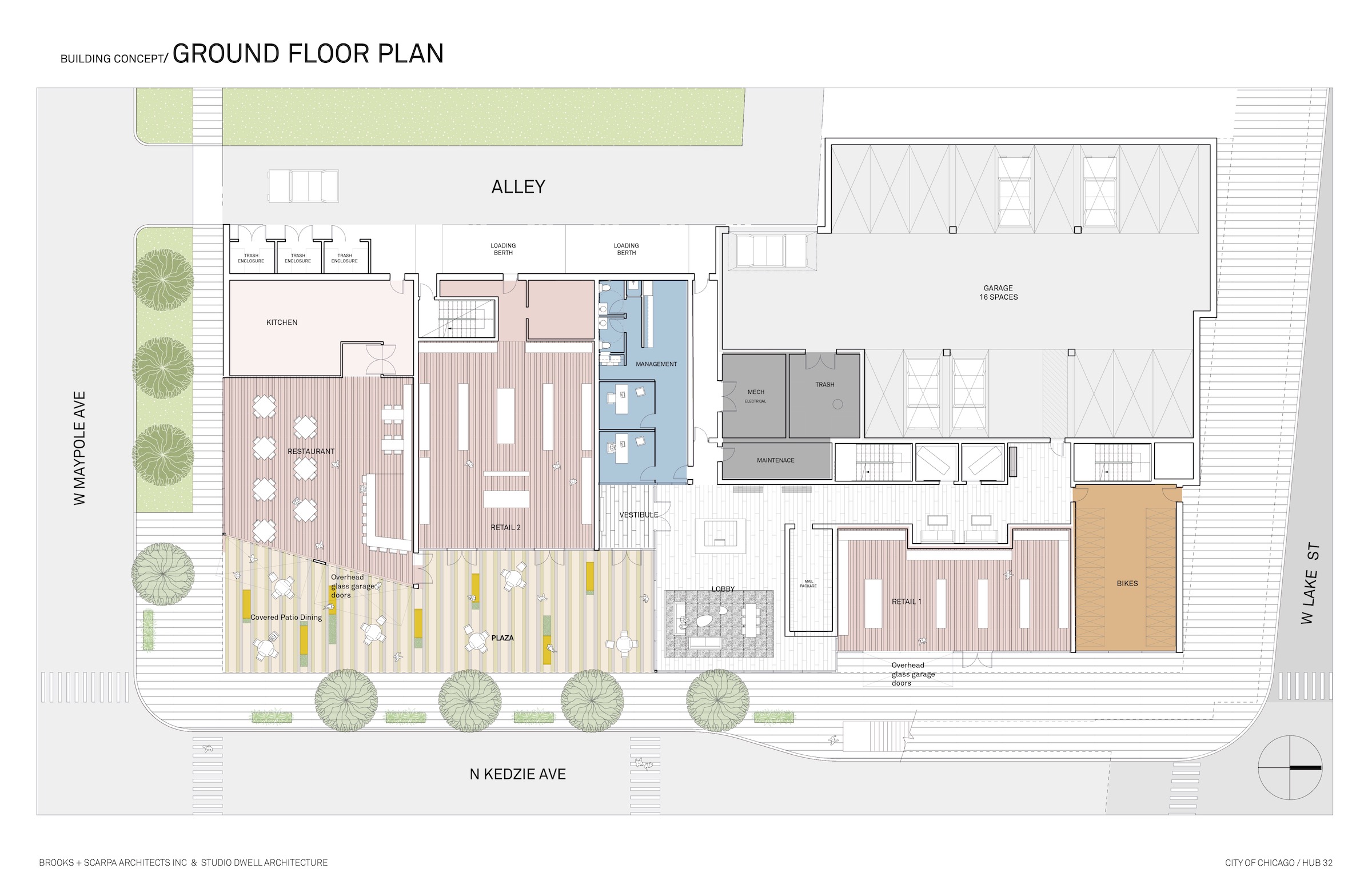
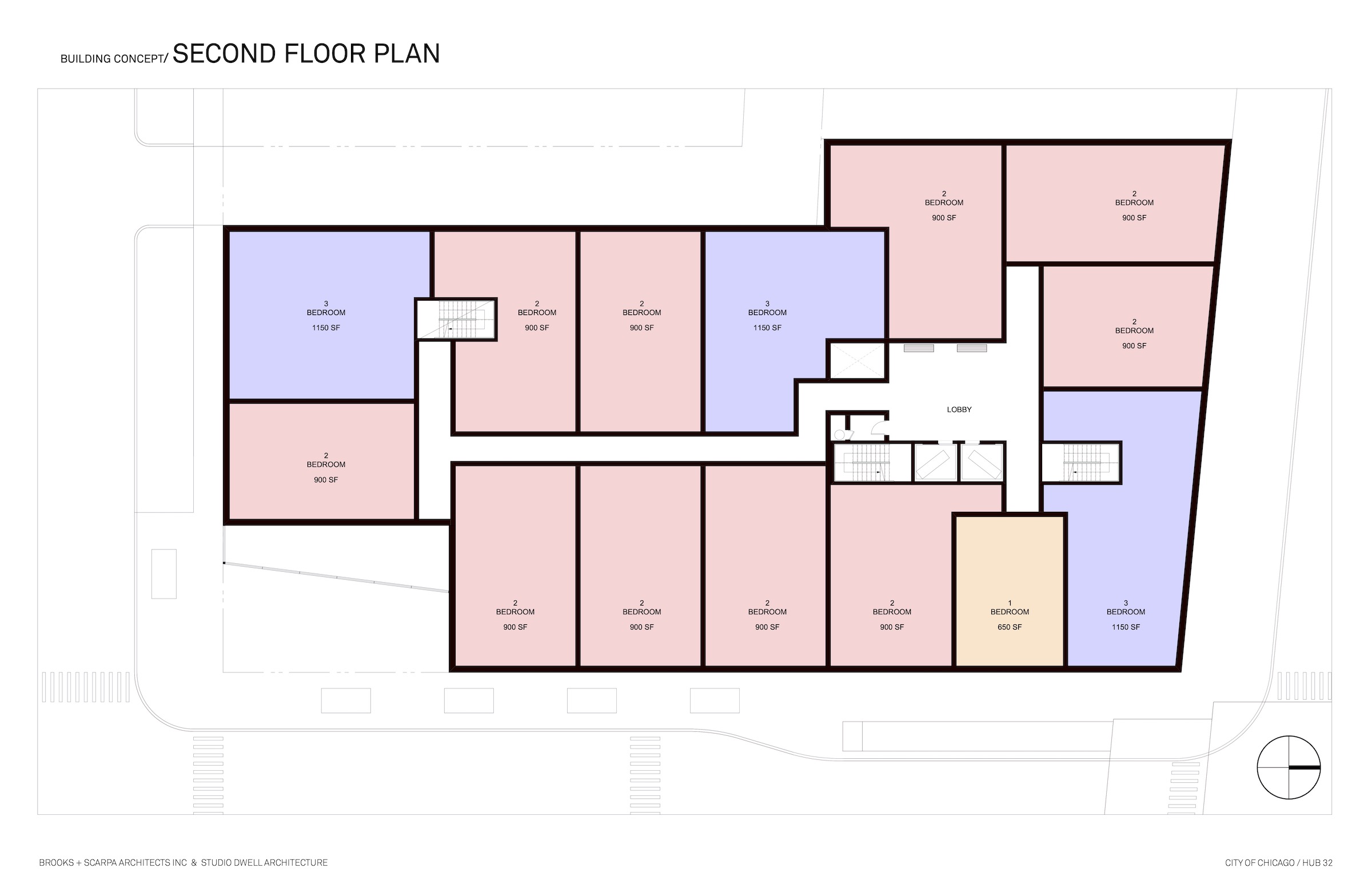
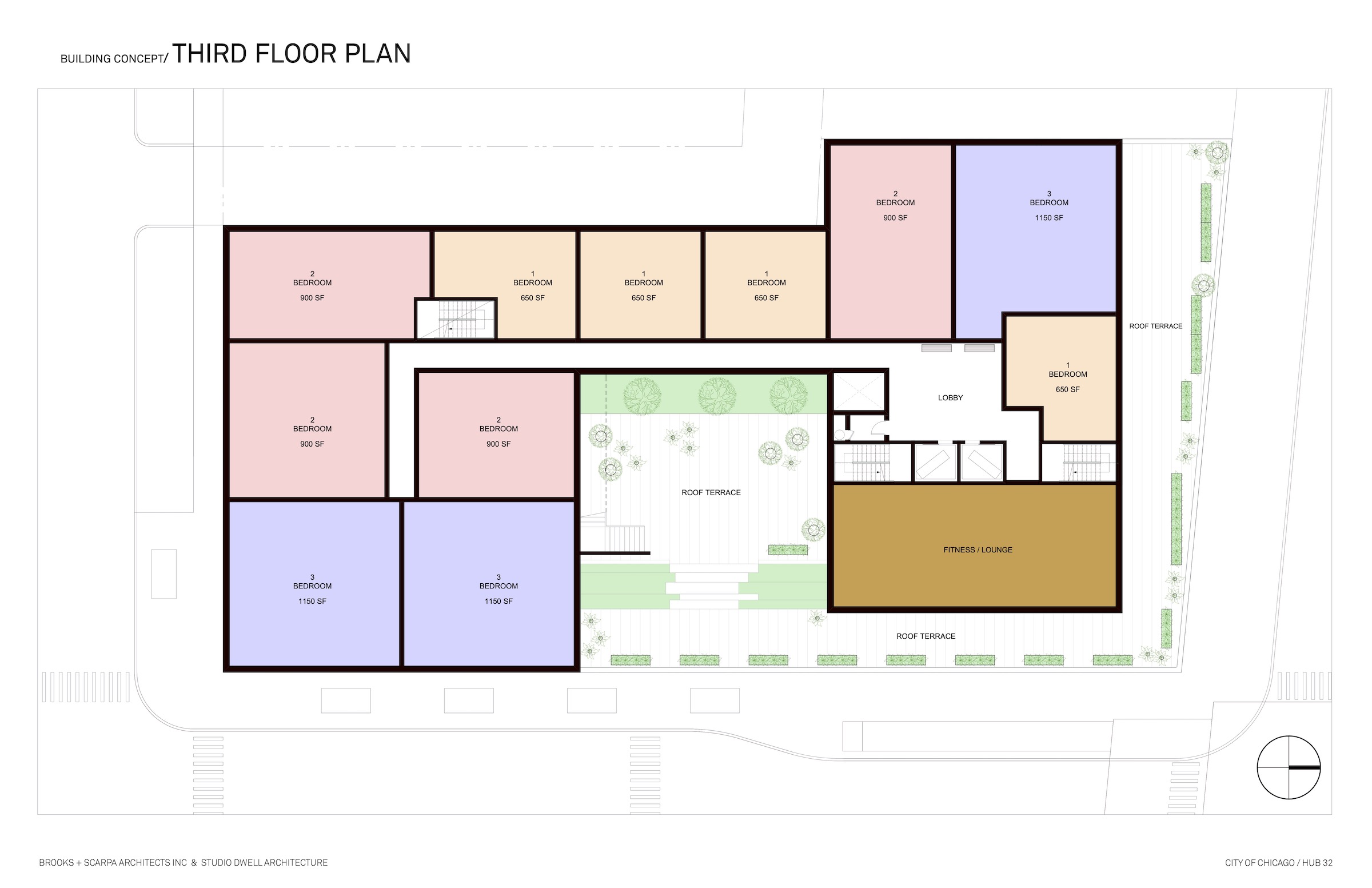
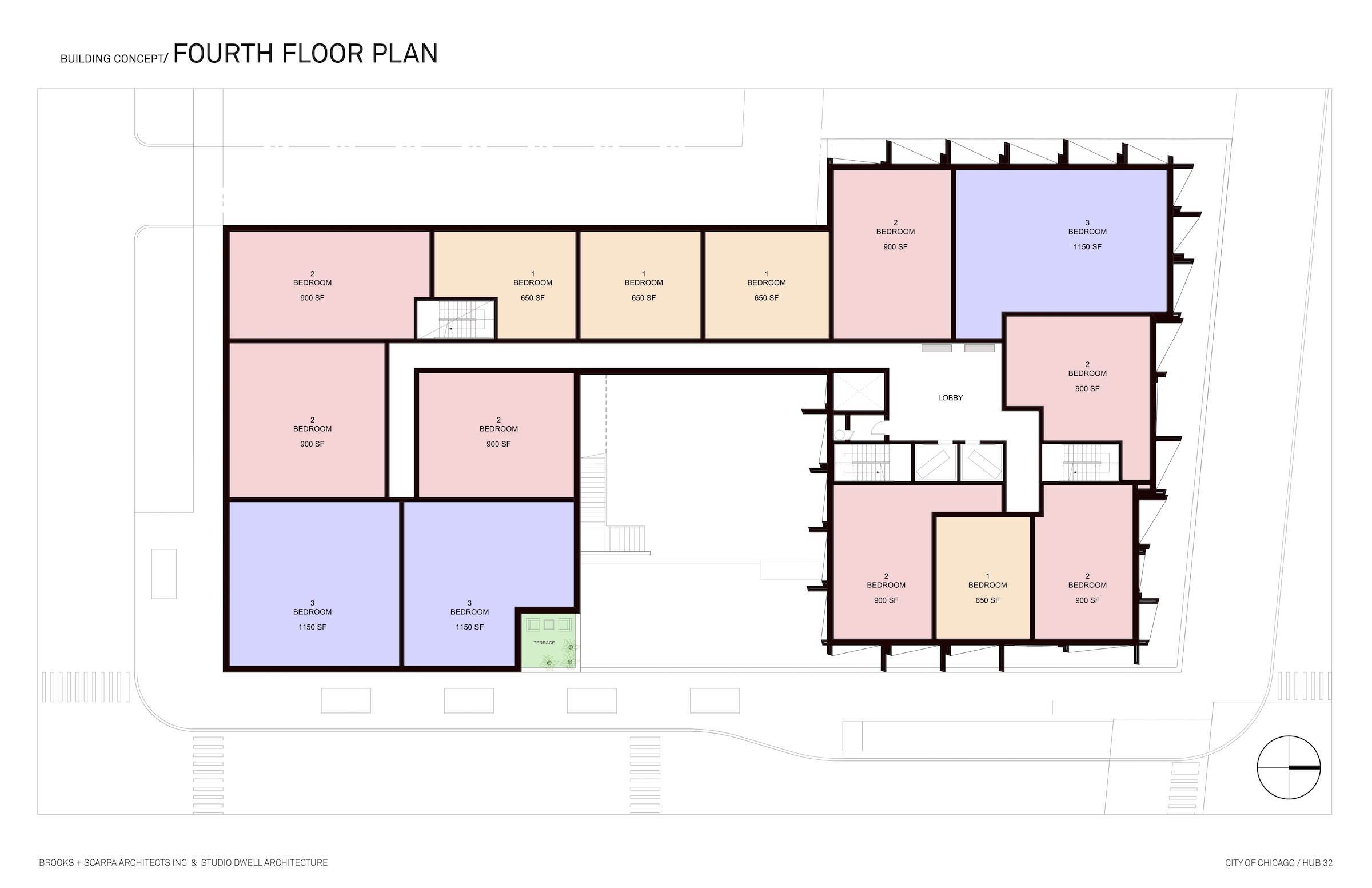
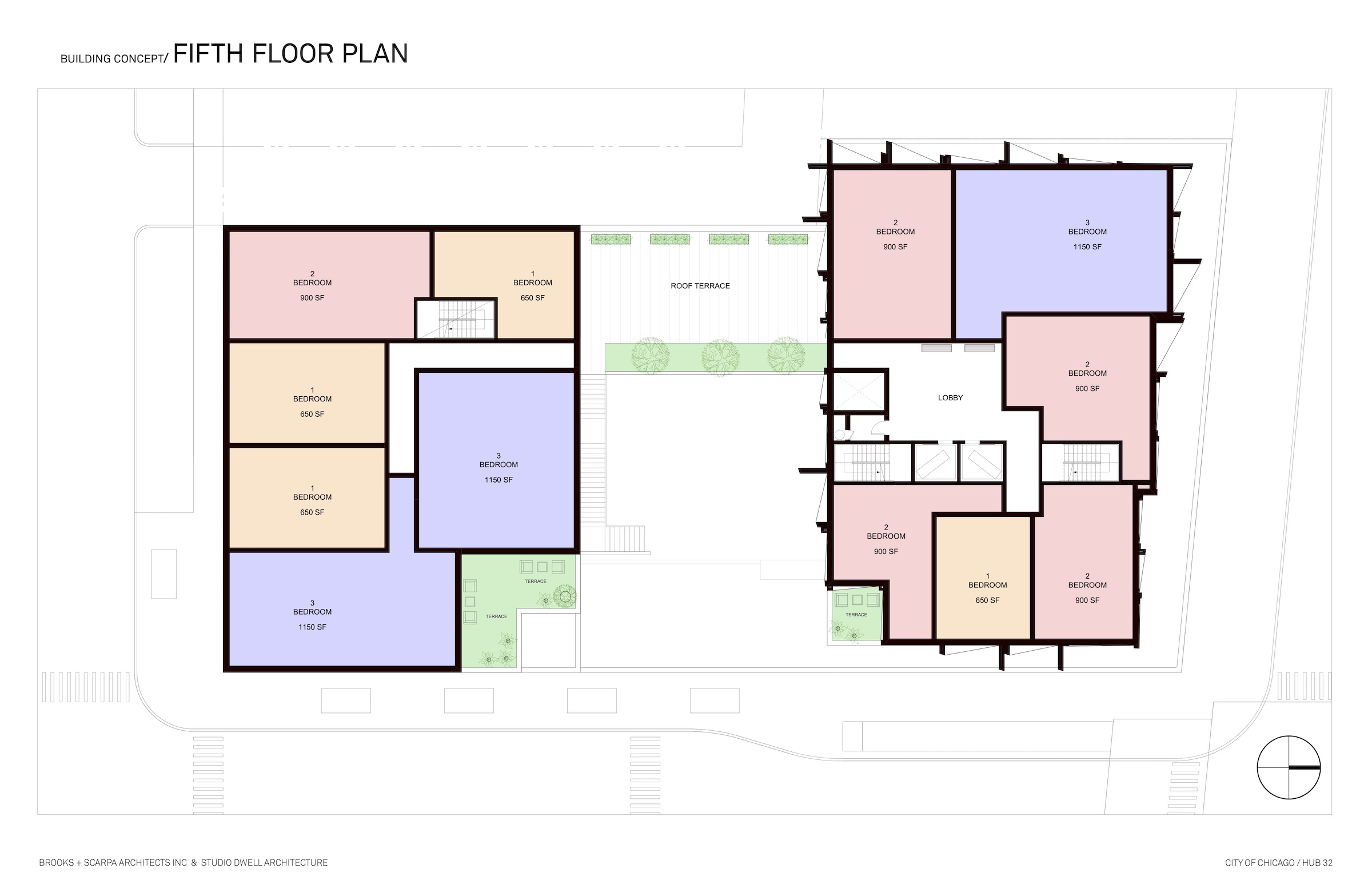
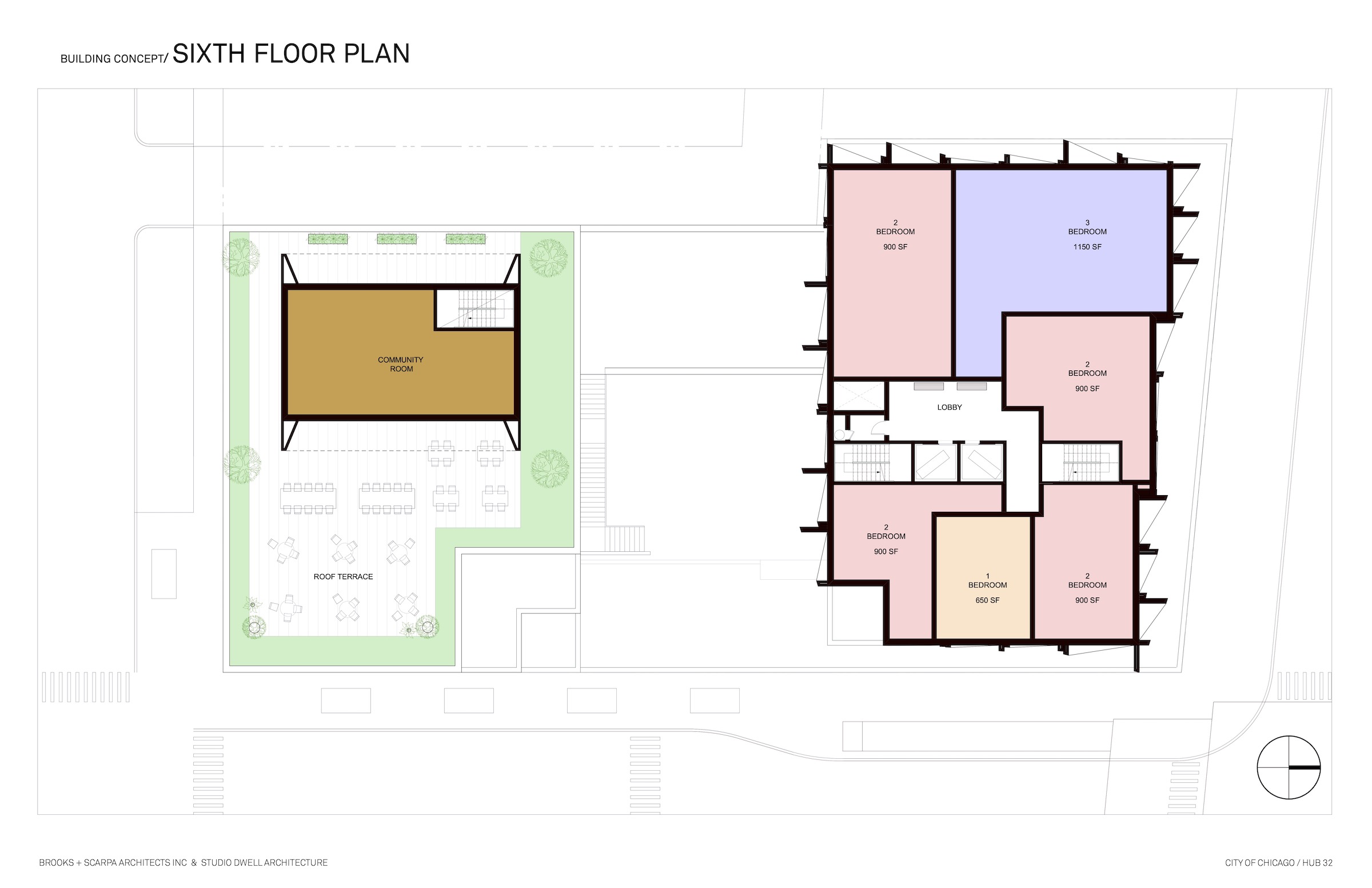
Related Stories
Multifamily Housing | Mar 10, 2015
KTGY homes in on seniors with new studio
Its director, Doug Ahlstrom, says designs will emphasize socialization and community.
Multifamily Housing | Mar 10, 2015
Multifamily renovation now drives growth for national restoration business
Response Team 1 has established a national footprint through acquisitions.
Retail Centers | Mar 10, 2015
Retrofit projects give dying malls new purpose
Approximately one-third of the country’s 1,200 enclosed malls are dead or dying. The good news is that a sizable portion of that building stock is being repurposed.
Architects | Mar 9, 2015
Study explores why high ceilings are popular
High ceilings give us a sense of freedom, new research finds
Transit Facilities | Mar 4, 2015
5+design looks to mountains for Chinese transport hub design
The complex, Diamond Hill, will feature sloping rooflines and a mountain-like silhouette inspired by traditional Chinese landscape paintings.
Multifamily Housing | Mar 3, 2015
10 kitchen and bath design trends for 2015
From kitchens made for pet lovers to floating vanities, the nation's top kitchen and bath designers identify what's hot for 2015.
Sponsored | Modular Building | Mar 3, 2015
Modular construction brings affordable housing to many New Yorkers
After city officials waived certain zoning and density regulations, modular microunits smaller than 400 square feet are springing up in New York.
Modular Building | Feb 23, 2015
Edge construction: The future of modular
Can innovative project delivery methods, namely modular construction, bring down costs and offer a solution for housing in urban markets? FXFOWLE’s David Wallance discusses the possibilities for modular.
Multifamily Housing | Feb 23, 2015
Millennials to outgrow Baby Boomers in 2015
The Baby Boomer generation, once the nation's largest living generation, will be outpaced by the Millennials this year, according to the Pew Research Center.
Multifamily Housing | Feb 19, 2015
Is multifamily construction getting too frothy for demand?
Contractors are pushing full speed ahead, but CoStar Group thinks a slowdown might be in order this year.


